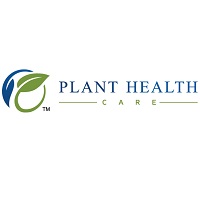Plant Health Care plc (LON:PHC) Chief Executive Officer and Executive Chairman Dr Chris Richards caught up with DirectorsTalk for an exclusive interview to discuss their full year results
Q1: You’ve released your full year results this week, can you talk us through the highlights please?
A1: In Plant Health Care, we had a very strong year in 2017. First of all, the revenue of our existing commercial product was up some 21% which I think is pretty healthy in a fairly flat market and particularly within that our core 2nd generational Harpin Alpha Beta had sales up significantly. We’re now on a strong growth track with 23% combined annual growth rate over the last 5 years which is very positive for me.
Secondly, we made tremendous progress with our new technology, our Pretec Plant Response Elicitor technology, we now have nine partners evaluating our technology and those none include the big five consolidated global agrochemical seed companies who represent probably more than 90% of the R&D spend in our sector. So, that’s a huge endorsement I think of the potential of our technology and we’re particularly excited about trials which are now in the ground in Brazilian soy which are progressing well.
Third point I’d like to bring down is we managed to do this with lower operating costs, we’re extremely conscious of the need to control our costs although we increased our R&D spend from $4.5 million to $5.1 million in 2017, we managed to reduce our administration costs by around $1 million so overall our cash burn went down.
Q2: As you pointed out, revenue and gross profit increased markedly in the commercial business, would you expect this trend to continue?
A2: Absolutely. We’re very excited about the potential, particularly for Harpin Alpha Beta, we’ve barely got going with this product, we’re coming into some very interesting growth opportunities particularly exiting in Brazilian sugar cane.
Harpin Alpha Beta is an outstanding product for Brazilian sugar cane, it increases yield by something like 12% which is worth $200-$300 a hectare and it gives farmers four times return on their investment. So, we’re very excited about that, there’s 10 million hectares of sugar cane in Brazil, we don’t need to get a very high proportion of that treated with Harpin Alpha Beta for us to make a significant impact on our revenue line.
We have a series of other opportunities around the world in many different crops and many different countries, so we are very confident that our growth in commercial revenue will be 20% plus over the coming years. It won’t always be linear, we’re in an agricultural market, seasonal factors come in, weather factors come in, but we’re very excited that over the period 20% compound annual growth is easily deliverable in our commercial business.
Q3: New technology is a key focus for Plant Health Care, what is the main background to this and the reasoning behind the geographic locations you’ve chosen to target?
A3: For us, the real upside in plant health care is our new technology which we call Pretec Plant Response Elicitors which are novel and exciting, we’ve got tremendous intellectual property and no one else is working in quite this area. Moreover, the company has been working on this in different guises for more than 20 years, so we have a great background and great strength and capability in our laboratories in Seattle on this.
The early generations of Harpin-inspired products are very exciting, for example the 2nd generation Harpin Alpha Beta that we sell now, but they have limitations because, particularly because of their stability and flexibility in mainstream agriculture.
What’s exciting about Pretec is the wide applicability, it fits right in with conventional agriculture, our product could be sold in organic agriculture, they are non-toxic biological products, but organic agriculture only represents something like 5% of the global opportunity, I’m interested in the 95%.
The fact that our evaluation partners, all these big companies are taking a look at the technology says a lot I think about the potential. We’re focussing on Brazilian soy just now because we see this as the quickest area for us to get into the market, to prove the value of the technology.
We have many other opportunities that we’re looking at, together with our partners who are spending significantly more money on the technology than we are through their trials in North America, Asia, Europe and many different crops; corn, soy, fruits, vegetables, wheat, so we’re very excited for the potential for Pretec.
Q4: So, what does your strategy as a group look like for the next 12 months?
A4: It’s pretty straightforward, we just need to deliver what we’ve said we’re going to do. We raised $7 million of equity earlier this year and that’s tremendous, we got great support both from existing investors and brought in some very important and valuable new investors which is exciting for us. All we need to do execute, we’ve got to deliver the revenue growth we promised, and that commercial business has got to start delivering significant cash to fund our research and reduce our cash burn.
We’ve got to deliver our first significant new technology license before the end of 2018 and that we’re very confident will be followed by other technology licenses in 2019 and beyond. Critically within that, if we continue along that track, we’ll reach cash breakeven in 2020 and we don’t aim to come back to the market for more equity in order to achieve that.
Q5: How has trading been in 2018 so far and are Plant Health Care well positioned for further growth this year, do you think?
A5: Yes, I’m feeling very positive about 2018. It’s not an easy ag market frankly out there and that doesn’t necessarily help us, commodity prices are a bit low and as anyone that’s looked out of the window in London over the recent weeks would know that the weather has not favoured us.
We’ve started in line with our expectations and we’re very confident on revenue growth for 2018 as a whole and beyond that, we have so many opportunities, we just need to focus on delivering the ones which will ensure that we get that 20% plus growth. Of course, the main excitement we have is delivering our first new technology license which we anticipate will be in South American soy and delivering that before the end of 2018.









































